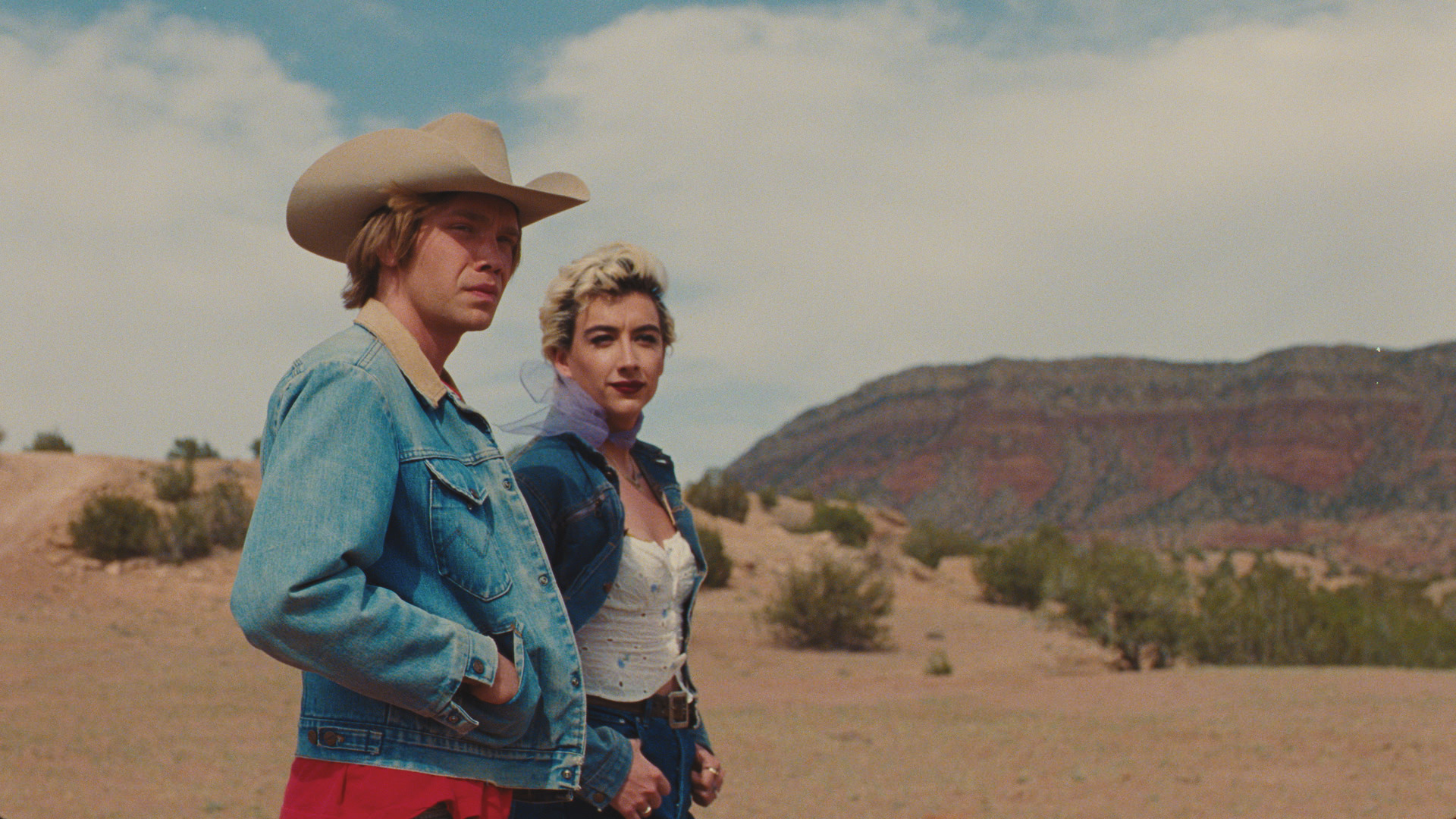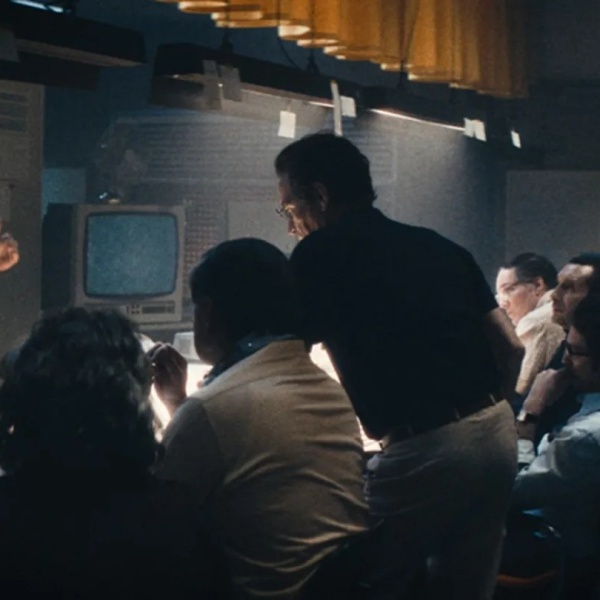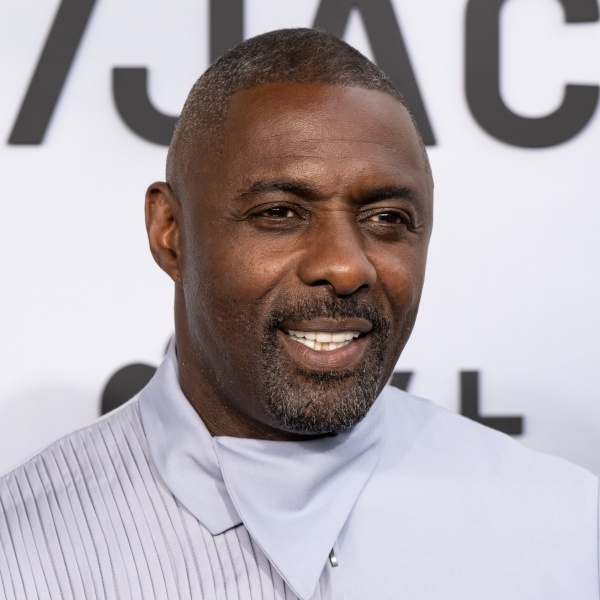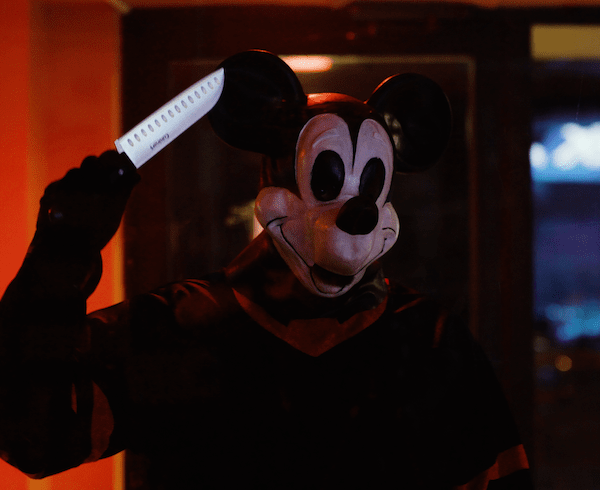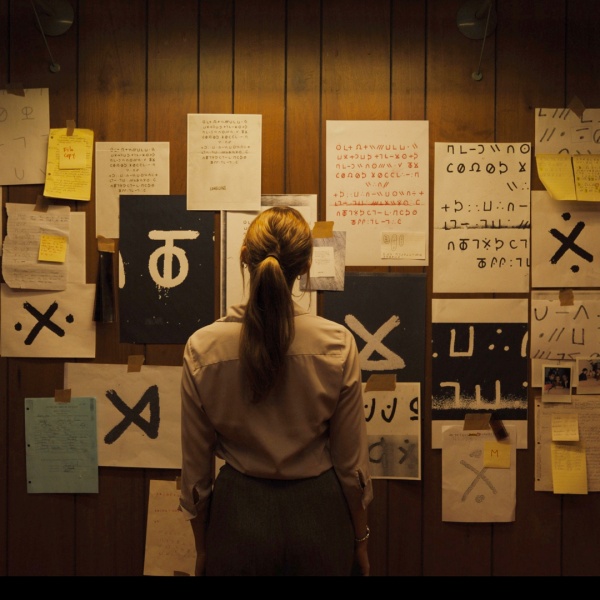A frank and stylishly made tale of coming of age and sexual frenzy in New Mexico, “National Anthem” commands your attention well before its centerpiece scene: Charlie Plummer, in a red sequined dress and grungy platinum-blond wig seemingly torn from the lookbook of mid-‘90s Courtney Love, performing drag to Alannah Myles’ whiskey-soaked power ballad “Black Velvet.”
The actor, a fair-haired 25-year-old so reedy he’s liable to get swept up with the tumbleweeds billowing across the desert, fulfills the promise of his breakout performance as another sort of cowboy in Andrew Haigh’s “Lean on Pete.” Dylan’s (Plummer) drag turn in this powerhouse moment is such a total 180 from the repressed construction worker we see in the opening moments, shouldering the burdens of caring for his little brother and sauced single mom. That’s because his American dream and sexual identity have been totally shattered by a spirited community of queer rodeo performers.
Luke Gilford, a fashion photographer and music video director for the likes of Troye Sivan and Kesha, pivots to feature filmmaker with a vivid and confidently told Western that twists the tropes of Americana and is unabashedly queer. While the melodramas of a hardscrabble life at home are never as compelling as the lively ranch that offers Dylan reprieve from them, “National Anthem” is high on mood and feeling rather than story. This very horny queer Western is a rush of sensory pleasures, from the reddened, rust-colored rocks of New Mexico as captured by cinematographer Katelin Arizmendi to a killer soundtrack featuring the likes of Angel Olsen, Perfume Genius, Susanne Sundfør, and Spiritualized.
In “National Anthem,” the adrenaline rush of bull-riding is as jolting as a first kiss. Dylan’s quotidian life between the odd construction job here and there is immediately toppled when he first spots the alluring, almost mystical Sky (Eve Lindley) on horseback as if a mirage. You’re not wrong to assume Dylan has had little exposure to the beautiful things in life, his nights at home spent sleeping on the couch while his mother (Robyn Lively) drunkenly brings back yet another one-night stand. He’s offered a job at the House of Splendor by Pepe (Rene Rosado), a found family of queer folks (some trans, some non-binary, some preferring not to identify at all) painting their own American dream in an Edenic corner of the desert. The House of Splendor’s star barrel dancer, Sky sparks an immediate connection with Dylan, even though she belongs to Pepe, and the rivalries and jealousies that form on the ranch create drama far more magnetic than what Dylan’s left behind at home. A home so crushingly intolerant of privacy that Dylan has to ride off into the wilderness to jerk off.

By day, Dylan tends to the House of Splendor’s homestead, getting to know its colorful cast of characters. By night, they take drugs and revel in the twilight, their bodies twisted in orgiastic ecstasy that Gilford and the filmmakers shoot with the buoyant energy and cutting of a music video. Which works both for and against the film, as Gilford is just as capable of holding the camera steady on a performance as naturalistic as Plummer’s. “I don’t think you’re boring. I just think you haven’t met your people yet,” one of the rodeo queens tells Dylan as the tectonic plates of his sense of self start to shift within him. His forbidden romance with Sky, and the encouragement of the House of Splendor’s rodeo queens, push him out of his shell in ways worth cheering for.
Gilford previously explored similar terrain in a 2020 photo project about the International Gay Rodeo Association. He also grew up in Evergreen, Colorado, amid a more traditionally patriarchal community of rodeo performers, and so “National Anthem” finds the gifted filmmaking querying (and queering!) the art of rodeo’s fundamental machismo, of which Dylan is hardly a proper fit anyway. So many coming-of-age stories in rural America focus on the straighter, whiter elements of that world, but Gilford busts conventions wide open with a cast of queer and BIPOC actors otherwise not spotlighted by what’s become a tired American genre. But the film is never pandering in its message, but instead only in the plot-driving, dramatic beats that must drive the contours of a coming-of-age story. Gilford is at first a stylist, elevating the material beyond the spare script he wrote with David Largman Murray and Kevin Best. A come-to-Jesus moment Dylan eventually shares with his mother — in which discussions of his long-absent father come to a head — feels more meant to tidy up loose ends than an organic catharsis driven by the less predictable turns that have come before.
Screenplay issues aside, “National Anthem” is awash in tactile cinematic beauty, from the smells of the stables to the sweat glistening on sun-baked skin. You can tell that Gilford is in love with the visual possibilities of Western storytelling, shooting on film to capture the majesties of golden light against a cowboy silhouette. The film is also sexually frank in ways that will startle audiences who drift into this movie expecting one thing, showing how first sexual encounters can overwhelm someone like Dylan almost lethally. Plummer’s performance, a marvel of the taciturn turned wide awake, sets him up as one of the great actors of his generation. He embeds himself so fully in a queer world seemingly far-flung from Dylan’s own, but it eventually emerges as the one he belonged in to begin with.
Grade: B
“National Anthem” opens in select theaters from Variance Films on Friday, July 12 before going wider on Friday, July 19.
